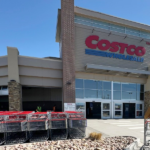Millennials and Gen Z are clamoring to break into the housing market—a feat seemingly impossible in an inflationary period with high home prices and mortgage rates. But one real estate veteran says owning a home might not be all it’s cracked up to be right now.
“You could rent a much nicer space for yourself than you could own one,” Korangy said. He gave the example of a wealthier buyer with a $3 million budget, and said for the same cost of buying that home, someone could rent a $5.5 million to $7 million home at the same monthly price.
“It just makes a lot more sense to rent,” he said.
There are also a lot of hidden homeownership costs like insurance, repairs, property taxes, homeowners association fees (if applicable), and landscaping and exterior upkeep.
One of the prime reasons for homeownership is the concept of building equity. By purchasing a home, you’ll eventually build equity in that property that you can benefit from in the future when, or if, you decide to sell the home.
That was all fine and good as people watched home prices skyrocket thanks to growing demand in the aftermath of the pandemic housing boom. Purchasing a house allows owners to build wealth over time by making mortgage payments to reduce the loan principal and increase the owner’s stake in the home until, ideally, it’s owned outright. Real estate typically appreciates, which adds to the homeowner’s wealth.
Korangy said as long as a person is okay with not building equity then renting would be the obvious choice.
Plus, you’re “also not connected to the market,” he said. “That means [you] can pick up and leave anytime [you] want. If anything changes for [you, you’re] not beholden to that. If something happens to the building, [you’re] not beholden to that.
“So there’s a lot of goods that come with renting, and a lot of people are taking advantage of that,” he added. “And the fact is not everybody should be an owner.”









